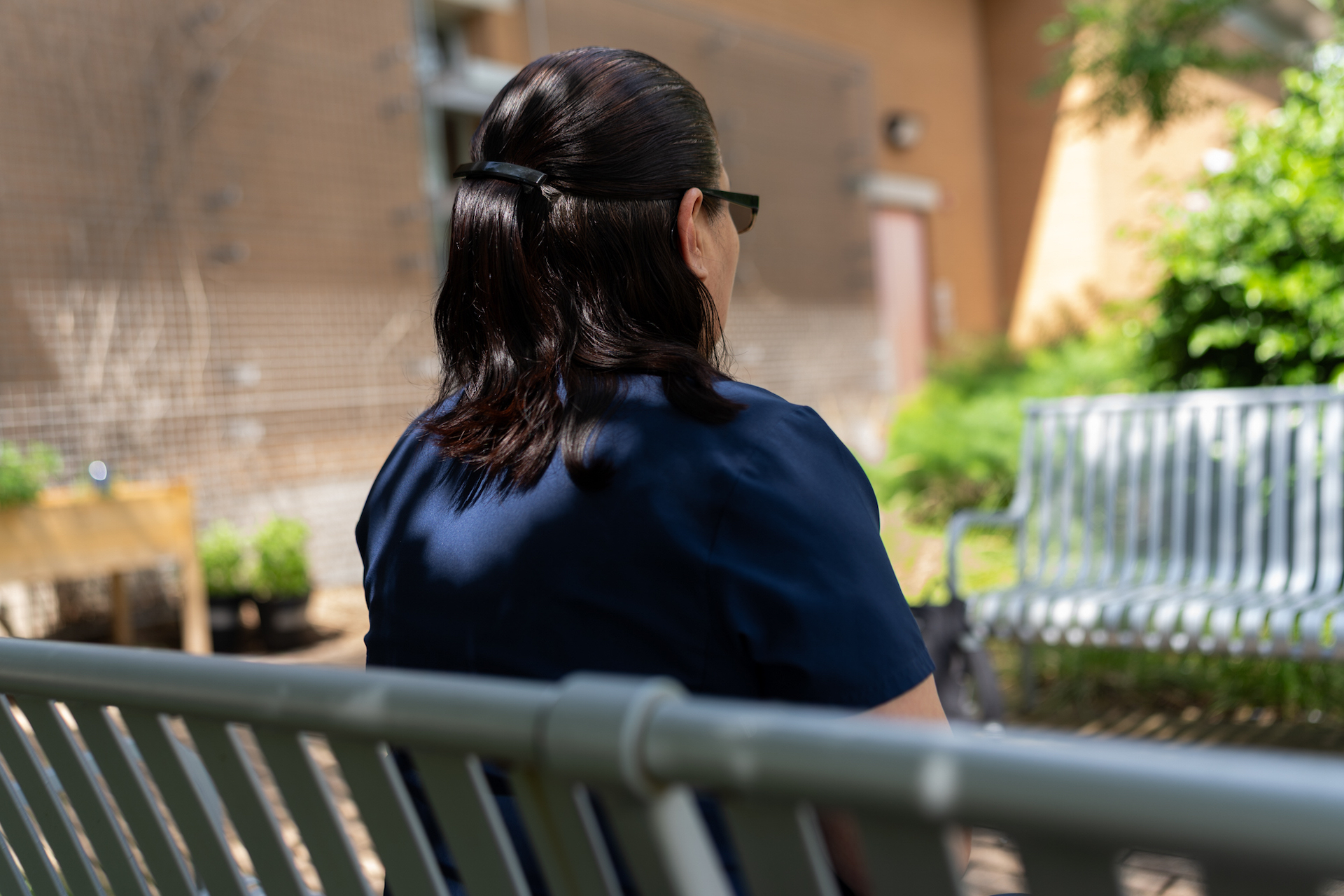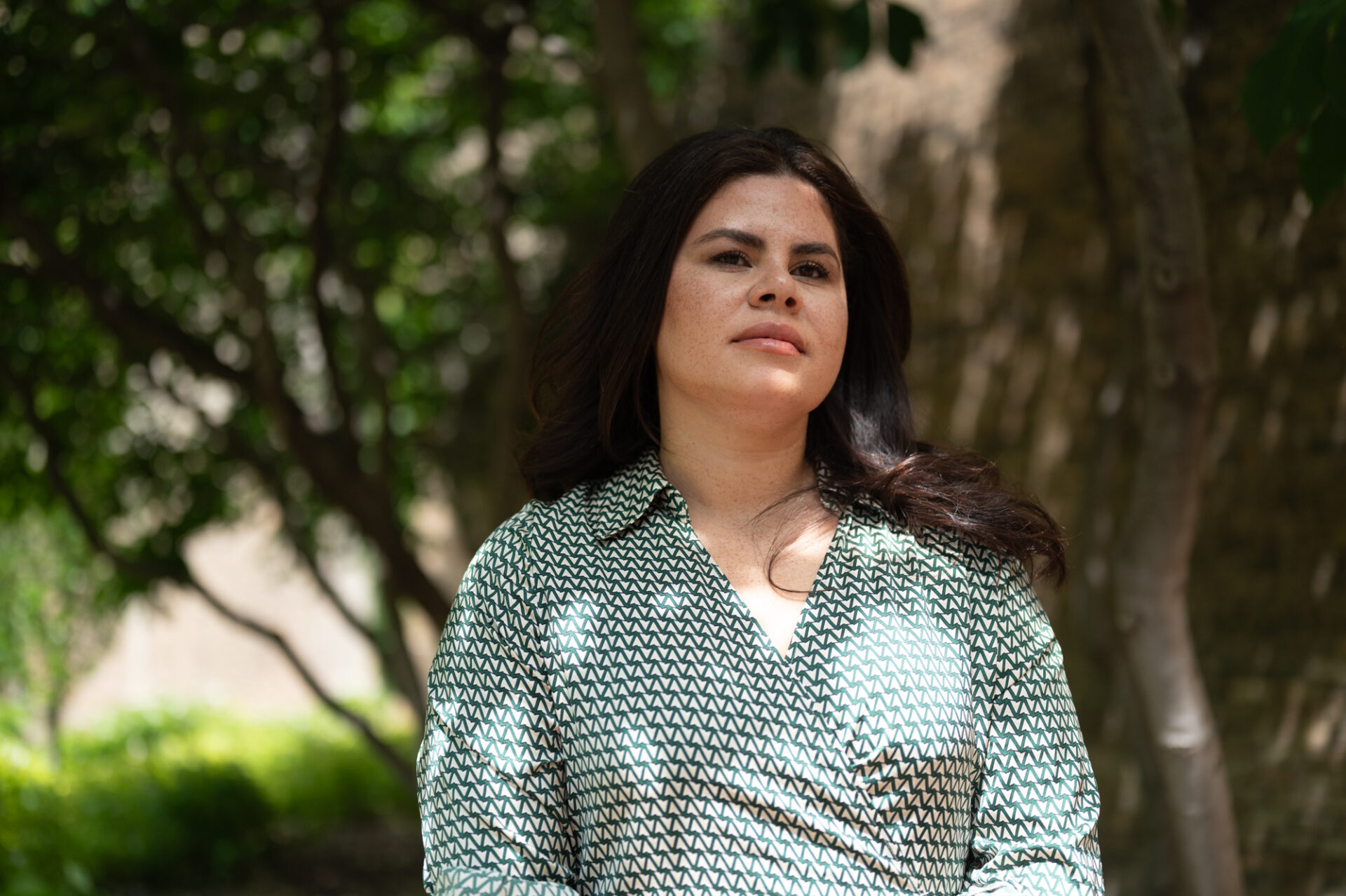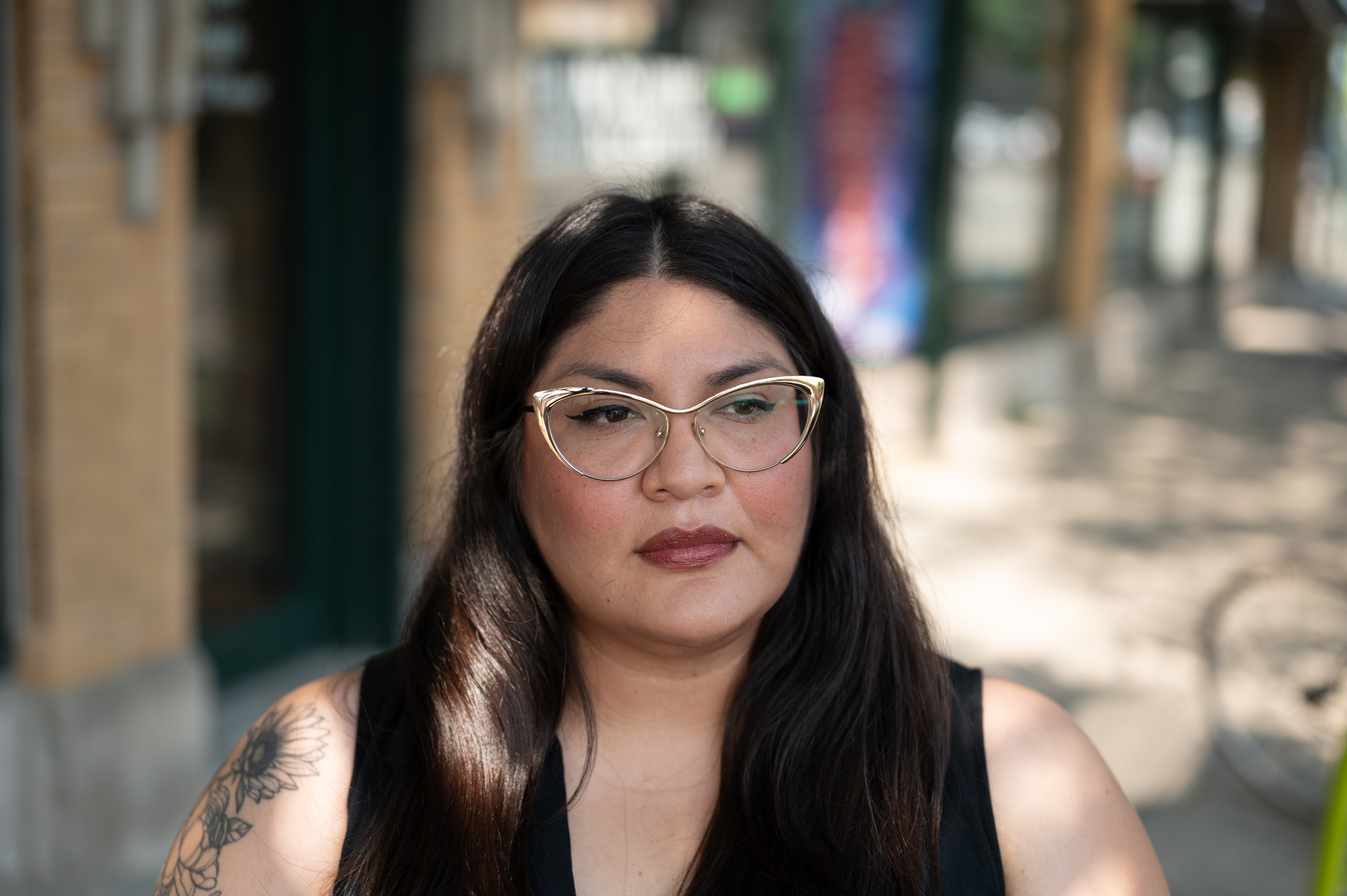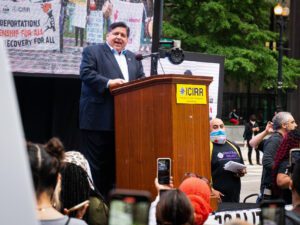 Camilla Forte/Borderless Magazine/ Catchlight Local/ Report for America
Camilla Forte/Borderless Magazine/ Catchlight Local/ Report for AmericaWith the elimination of the Health Benefits for Immigrant Adults program July 1, some local organizations say they have taken matters into their own hands.
Since 2022, Rosa has been receiving treatment for diabetes. It’s the first time she’s received consistent medical care.
Recently, Rosa, who asked to remain anonymous because of her legal status, has been visiting an optometrist every three months as her eyesight worsened from diabetes.
She is one of over 30,000 undocumented immigrants that lost health coverage as Illinois ended its Health Benefits for Immigrant Adults (HBIA) program July 1.
News that puts power under the spotlight and communities at the center.
Sign up for our free newsletter and get updates twice a week.
For the past three years, the program provided healthcare to immigrants without legal status between the ages of 42 and 64, covering doctor and hospital care, lab tests, therapy and mental health services. Advocates and immigrants said the program was critical for the community, especially during the COVID-19 pandemic.
But earlier this year, Gov. JB Pritzker proposed cutting the program as part of his $55.2 billion budget, later approved by state legislators. The decision garnered frustration and pushback, but failed to generate enough support to keep the program alive.
Now, Rosa is navigating a new reality without health insurance.
“I feel a little disappointed,” she said. “There’s nothing we can really do.”
In February, Pritzker announced his decision to cut the program in his State of the State address. He noted that nationwide federal budget cuts were the reason to cut the program. The state was estimated to pay more than $400 million annually for the HBIA program.
“But if there’s one thing I’ve learned as governor — there are no magic bean fixes,” Pritzker said. “Each year, there’s some difficulty that requires us to work hard to overcome it.”
In 2020, Illinois launched Health Benefits for Immigrant Seniors (HBIS), providing coverage to adults 65 and older regardless of status. In 2021, the state created HBIA, covering immigrant adults between the ages of 55 and 64. The state expanded the program to immigrants between the ages of 42 and 64 the following year.
In a study released by the University of Illinois Chicago’s Great Cities Initiative, commissioned by the Healthy Illinois Campaign, researchers said the expansion of health coverage for immigrant adults and seniors:
- increased early disease detection, and led to reduced long-term medical costs;
- improved health outcomes; and
- helped people access health care that others already received.
Studies also show that while the HBIA program benefited immigrants, it also strengthened the hospital system by providing them with funds for resources and services.
Aresha Martinez-Cardoso, lead researcher on a University of Chicago project looking into HBIA’s impacts on Illinois immigrants and hospitals, led a team in investigating how the implementation of HBIA impacted Illinois immigrants and hospitals. They found that after HBIA, Illinois hospitals experienced a reduction in uncompensated care — healthcare costs hospitals don’t cover for patients or insurers.
The state has saved $65 million a year since the start of HBIA and HBIS programs, according to the Embodying Race(ism) Lab at UChicago. Martinez-Cardoso noted that HBIA proved to be a more efficient way of providing healthcare.
“Without these dollars, it’s kind of up in the air, not only for the individual people who are enrolled in the program, but also for the entire healthcare system that relies on state funding and state backing,” she said.

She said that while immigrant communities seek safety from immigration enforcement, they also need security in the healthcare system — something she said state representatives have failed to provide.
“When we throw out one marginalized group, who comes next is my concern,” Martinez-Cardoso said.
The Healthy Illinois Campaign — a coalition of legislators, advocates and community groups that fought to save the program — argued the cuts would lead to “preventable emergencies and rising costs.”
Emily Cole, lead organizer with Community Organizing and Family Issues, a grassroots organization that worked closely with the Healthy Illinois Campaign, said both organizations have been working towards finding healthcare alternatives for the uninsured.
“For the last few months, people have been feeling a lot of uncertainty, fear and anxiety about having access to the healthcare coverage that they need,” Cole said.
But Cole hopes that HBIA can return and receive more support. She said legislators made a pressurized decision to vote to eliminate HBIA after facing a similar uncertainty about what the Trump administration’s federal cuts would look like.
“Legislators in some ways were not prepared for the speed at which the Trump administration was going to move at, and the amount of things that he was doing that the administration would target,” she said. “I think we were caught in a difficult moment.”
Read More of Our Coverage
Meanwhile, some senators and longtime supporters of HBIA and HBIS expressed disappointment for the new budget cuts, but vowed to continue fighting for healthcare access.
Sen. Graciela Guzmán moved HBIA and HBIS forward as campaign director for the Healthy Illinois Campaign. Through these efforts, Illinois became the first state in the nation to offer healthcare coverage to low-income immigrant adults regardless of status.
“The wins we were able to get in those respective years to cover folks through HBIS and HBIA were incredibly important,” she said. “A lot of people were not only seen for the contributions they have made to the state of Illinois, but that they could have what they need.”

Now, she says, legislators felt pressured to rollback their commitments to immigrant healthcare because of federal government threats. Still, she hopes to advocate for immigrants, on the state and federal level.
“The pressure of the boilerplate conditions that are being cooked by the threats the federal government levied certainly are a factor,” she said. “Our state’s inability to have more revenue to be able to cover essential human needs is the other story.”
For Bertha García Silva, who has lived in Chicago for over 30 years, HBIA was her first opportunity to get health insurance. She received coverage for a year to receive treatment for her cancer treatment and therapy, but now she’s left scrambling.
“I don’t have the resources to see a doctor,” she said. “Now that they’ve taken away my card, I don’t have a way to go to my follow-up appointments.”
García urged authorities not to take away healthcare benefits, saying the costs are too high for herself and others in this situation.
“We need help,” she said. “We live paycheck to paycheck, paying rent and bills . . . We don’t have the means to buy medicine, pay for appointments or get what we need. We just can’t make it work.”
As thousands lost HBIA coverage on June 30, HBIS is currently paused for new enrollments, but previously enrolled seniors in the program will continue to receive coverage.
In response, local organizations are stepping up to help noncitizens access free to low-cost health services through resource guides.
Alongside Know Your Rights workshops centered around health, organizations like the Illinois Coalition for Immigrant and Refugee Rights have been hosting and attending meetings to better understand what resources are available to the uninsured undocumented population.
These trainings center around giving more information on hospital financial assistance, free clinics, Federally Qualified Health Centers, emergency Medicaid and more.
“It is to make sure people know where to go if they are seeking treatment somewhere, knowing that they have the right to ask for treatment, helping them apply for hospital assistance to make sure that the treatment continues,” senior director of health policy at ICIRR, Luvia Quiñones, said.
ICIRR also offers a state-funded program called the Immigrant Family Resource Program that targets individuals from limited English-speaking families and are not fully aware of how to navigate the medical system. The 44 statewide organizations help inform individuals of their options and how to access public benefits and services.
“There are still a lot of other individuals that are uninsured,” Quiñones said. “They’re facing medical debt, and they also have very few resources. So from our end, we continue to advocate for health coverage for all.”
For Rosa, the disappointment still lingers.
“Many people just let it go because they don’t want to deal with going back and forth,” she said. “I fought for it, because I have diabetes and I need the care.”
Tara Mobasher is a Northwestern Medill Reporting fellow at Borderless Magazine. Email Tara at [email protected].
Lucy Bapiste is a Borderless reporting intern. She can be reached at [email protected].


